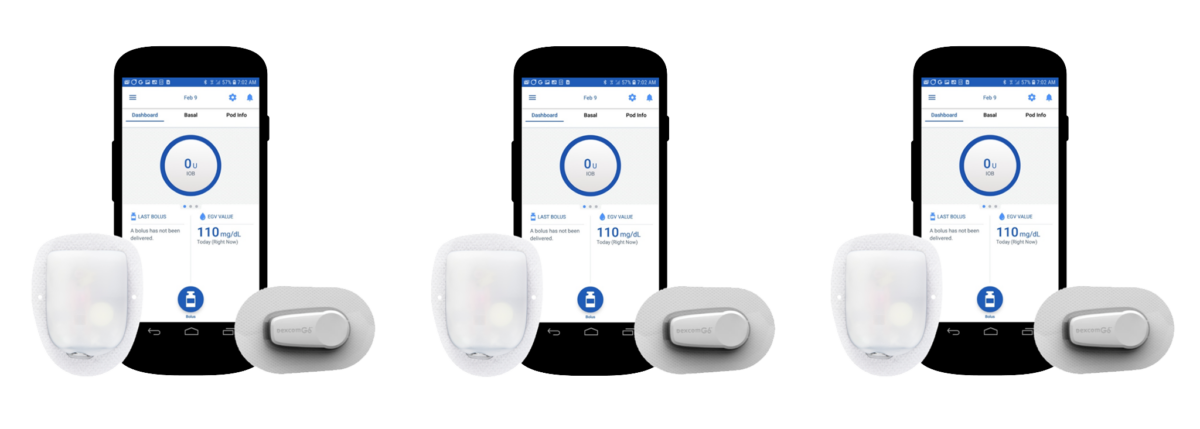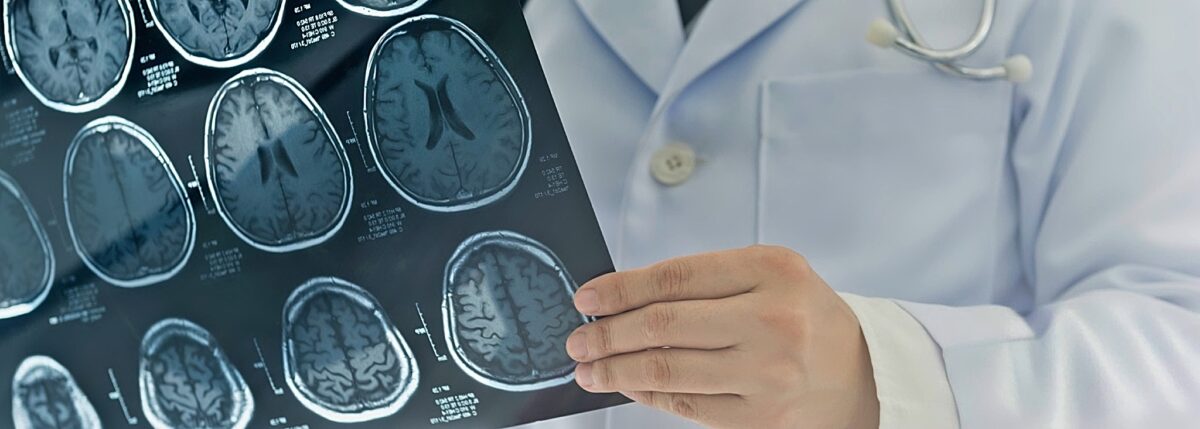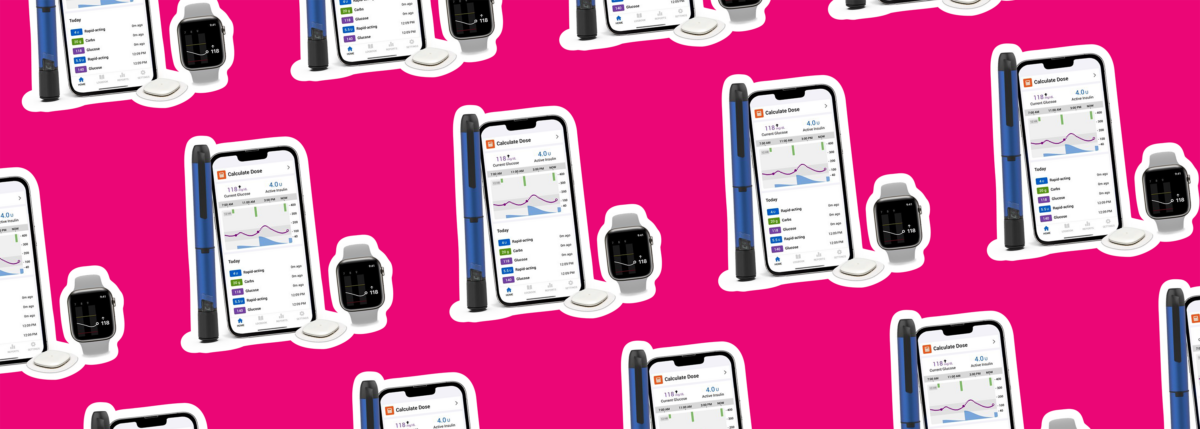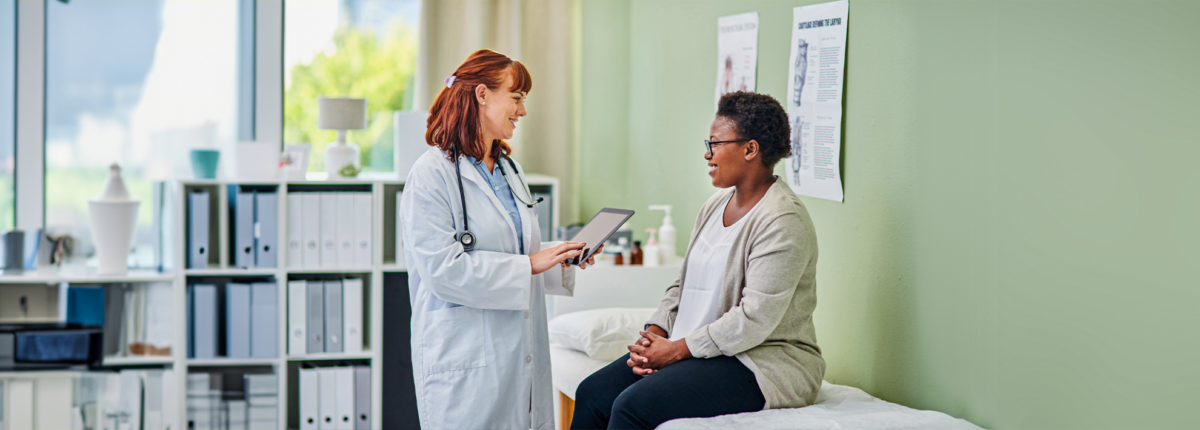An Interview with ADCES 2020 Innovative Use of Technology Award Winner, Molly Wagman
Written by: T'ara Smith, MS, Nutrition Education
5 minute read
August 13, 2020
2020 Innovative Use of Technology Award winner, Molly Wagman, MS, RDN, CSSD, CDCES, talks to Beyond Type 2 about using mySugr to improve the lives of diabetes patients.
Molly Wagman, MS, RDN, CSSD, CDCES, is this year’s recipient of the 2020 Innovative Use of Technology Award presented by the Association of Diabetes Care and Education Specialists (ADCES). Serving as head of clinical operations, US, at mySugr, Molly has been improving lives within the diabetes community for nearly a decade. With the rise of telehealth, particularly due to the COVID-19 pandemic, providers have been tasked with adjusting their care practices to continue to serve their diabetes patients; Molly is no exception. However, what is exceptional is her use of technology to continue to provide high-quality care for people living with diabetes. Molly chatted with Beyond Type 2 during the ADCES Virtual Conference to learn more about her award, positive outcomes she’s seen in her patients and the importance of remote diabetes care for underserved people with diabetes.
BT2: CONGRATULATIONS, MOLLY, ON RECEIVING THE 2020 INNOVATIVE USE OF TECHNOLOGY AWARD! CAN YOU TALK ABOUT THE INNOVATIVE WAYS YOU’VE USED TECHNOLOGY TO TREAT PATIENTS WITH DIABETES, ESPECIALLY DURING COVID?
Thank you! We are honored to be recognized. This award is shared with the entire mySugr team. Every person at mySugr is dedicated to helping people with diabetes ease the complexity of their daily diabetes routine.
At mySugr, we aim to provide solutions that help people living with diabetes feel supported, understand their own diabetes and interpret their data, empowering them to manage their long-term health. Specifically, through coaching, we’re always available on-demand through our coach chat feature. We’ve also leveraged our platform to create and deliver comprehensive, fun and interactive educational content. As a diabetes educator, having access to all diabetes data in one place is a dream! This makes interactions with our users incredibly productive.
Many people with diabetes are taking advantage of free access to mySugr Pro during the COVID-19 crisis. With mySugr Pro, the user can create and share detailed PDF reports of their diabetes data, which can make a big difference in the efficiency and experience of your virtual or in-person doctor’s visit.
What positive outcomes have you seen in your patients who’ve used your telehealth services?
People with diabetes make their own therapy decisions multiple times per day. The ongoing monitoring and problem solving involved in diabetes management can be complex—it’s a lot to keep track of. Monitoring—like using the mySugr logbook app—helps keep all the data in one place, making it easier to evaluate. This alone leads to improvements in blood glucose and confidence in one’s ability to self-manage.
Diabetes coaching has also grown in popularity. This helps provide on-demand support in any area related to one’s diabetes to keep up with their health in-between doctor visits.
Through one-on-one, personalized coaching from Certified Diabetes Care and Education Specialists (CDCES), people with diabetes can set and meet their personal health goals, which can range from physical activity to healthy eating to preventing complications. Depending on the individual’s goal, we’ve been happy to see clinical outcomes like lowered A1c and weight loss and softer outcomes like increased logging and reports of feeling more confident in managing one’s diabetes.
Can you discuss the importance of telehealth and diabetes technology to treat underserved populations?
The majority of people with diabetes in the US belong to underserved populations, so this is an important topic. The barrier to accessing and continuing with quality care is incredibly high for reasons like time, travel, cost and health literacy burdens. Telehealth is instrumental in increasing the access to HCPs and diabetes specialists by easing some of these burdens like the physical, emotional and financial tolls of travel. More than ever, it is essential for people with diabetes to feel supported in their self-management and connected to their entire healthcare team. Telehealth can help facilitate this.
Diabetes is well-suited to virtual care because the interactions with your care provider rely on data evaluation and discussion of lifestyle habits. With the mySugr app and services, our goal is to support productive interactions between people with diabetes and their healthcare providers now and in the future.
 Remote diabetes care is relatively new, are your patients surprised about how easy it is to communicate with you to receive the care they need?
Remote diabetes care is relatively new, are your patients surprised about how easy it is to communicate with you to receive the care they need?
Sometimes our users are pleasantly surprised that we are real, live coaches! And they are grateful that they can send us a secure text message through the app and get a response by the next business day at the latest. They also love how easy it is to share their data with their doctor and us.
Many healthcare professionals are transitioning to remote patient visits now, which is great for everyone. Virtual consults can save time and provide a level of convenience and safety, especially during this pandemic.
mySugr Pro is available for free to people with diabetes until next month, what benefits can people with diabetes get from this app?
With the mySugr Pro app, users have access to valuable features to better manage their diabetes. The greatest benefit is that they can create and share detailed PDF reports with their health care team. The PDF reports include aggregated diabetes data from blood glucose meters and information like food details, insulin dosages, emotions and estimated HbA1c. This efficient overview of information can help both PWDs and HCPS recognize patterns to individualize guidance. The details beyond blood glucose provide context around the numbers and help prompt discussion with healthcare providers, enabling a better experience.
What impact have you seen so far in patients with diabetes who’ve used the mySugr Pro app?
The excitement from people with diabetes to have the Pro version for free has been amazing to see. The ability to see data insights and stay connected with their healthcare provider has been key. The mySugr Pro PDF reports previously mentioned provide data for healthcare teams to spot trends and provide personalized guidance.
For patients with diabetes who aren’t as tech-savvy, what are some ways you’ve been able to onboard them to your program?
mySugr has been a digital tool from the start, so it has always been important for us to offer a user-friendly interface. There are minimal steps to get started and you can individualize the data you input to make the experience your own. For our subscription service that includes unlimited test strips and coaching, each user also receives a series of onboarding emails with video and text explanations about how and why to use the different features.
Most importantly, we have an amazing Customer Support team that can help with any issue!
What are some ways to improve the ease-of-use of remote diabetes care platforms?
Simplicity is key. Limiting the number of web or phone applications needed and accounts to create (and remember!) makes everyone’s life easier. Even for someone tech-savvy like me, I got all mixed up at a recent appointment because there were three different apps and two different accounts that I needed—just to see ONE doctor!
Also, I believe having a great Customer Support team is essential! There will always be hiccups with technology and it’s always nice to have a real person help you.
What are you excited about in regards to the future of technology in diabetes care?
The COVID-19 pandemic threw the spotlight on the role of technology in diabetes care. We quickly embraced telemedicine technology for patient consults, digital services and personalized coaching to help keep up the continuum of care. I really hope this sticks and reimbursement improves for these services. I am excited to see additional advances in telehealth access and diabetes technology like remote education programs and continuous glucose monitors that continue to make a huge difference in the lives of people with diabetes!
This content was created in partnership with Roche Diabetes Care (Accu-Chek), a Founding Partner of Beyond Type 2.

Author
T'ara Smith, MS, Nutrition Education
T’ara was diagnosed with type 2 diabetes in July 2017 at the age of 25. Since her diagnosis, she focused her academic studies and career on diabetes awareness and living a full life with it. She’s excited to have joined the Beyond Type 1 team to continue her work. Two years later, T'ara discovered she'd been misdiagnosed with type 2 and actually has latent autoimmune diabetes in adults (LADA). Outside the office, T’ara enjoys going to the movies, visiting parks with her dog, listening to BTS and cooking awesome healthy meals. T’ara holds an MS in Nutrition Education from American University.
Related Resources

Already compatible with Dexcom’s G6 and G7 continuous glucose monitors (CGMs), the Omnipod 5 Automated...
Read more

The younger a person is diagnosed with type 2 diabetes, especially those with obesity, the...
Read more

The Oura Ring, which tracks things like sleep, heart rate, and activity, is joining forces...
Read more


